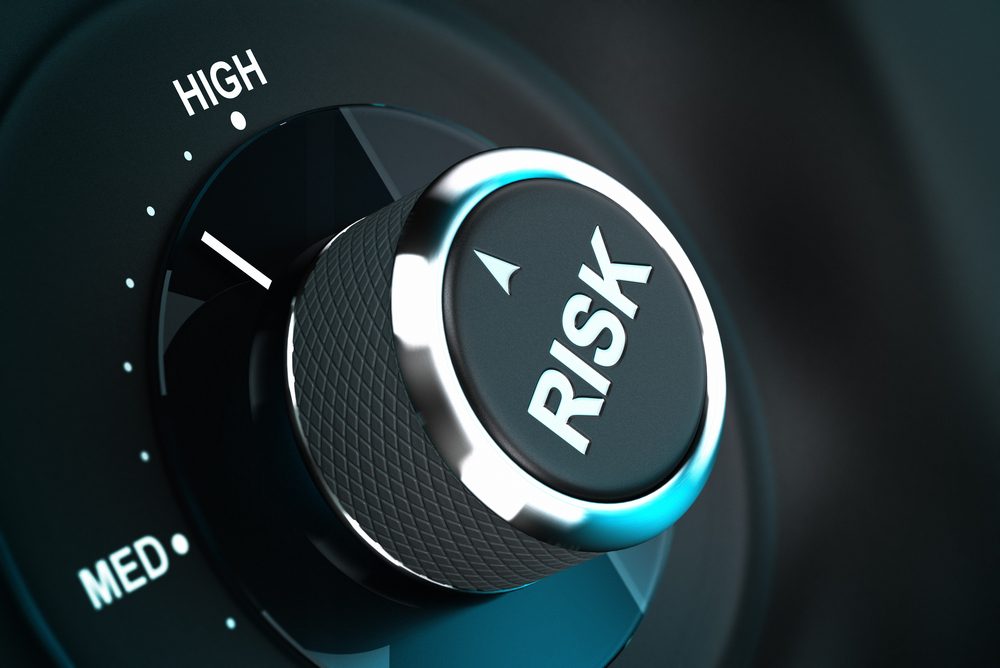Battling PH Risk Can Be a Double-edged Sword

Risk is an essential part of living and as diverse as the humans who partake in it every day. So, saying I’m not a risk-taker is like claiming I don’t need air to breathe.
Living is a precarious journey through success and failures.
As babies, we are young explorers crawling toward the unknown. Our survival becomes dependent on risk from the moment we take our first steps and speak our first words. From then on, what we say and do will result in positive or negative consequences, as will our silence and lack of action.
Our contentment in life is greatly affected by what I consider to be essential risks. These include the relationships we form and those we choose to end. Critical choices about our education, employment, family, and geographic location are ones that we all must make. Then we are challenged with the risk of resting with our decisions or trying something new.
Ironically, we ease the pressure of essential risks by enjoying creative ones. These pleasurable risks include playing sports, traveling, indulging in food and drink, and enjoying other forms of recreation.
I always have been careful with the risks I take for fun. If something seems too dangerous, I quickly lose interest. But to each their own. If extreme sports and living life on the edge is your thing, more power to you.
My son’s pulmonary hypertension (PH) diagnosis was my first experience with risk in a life or death situation. It altered my thinking. For the past 10 years, I have had to encourage my son to take risks with his life to try and save it. This cruel irony has caused me to struggle with the idea that some people gamble with their lives for the thrill of it.
Cullen was 8 years old when doctors diagnosed him with PH. His cardiologist explained the rarity of this life-threatening disease and suggested that we seek a specialist’s care in California. We live in Washington state, so the long-distance care alone was a risk, but we were desperate. We would have traveled the world if needed.
But I was thrown off balance when, prior to Cullen’s appointment, the specialist discussed over the phone an aggressive continuous intravenous treatment. He felt strongly that Flolan (epoprostenol GM) would benefit my son, but it would require the placement of a central line. My husband and I would have to learn how to maintain it, manage the pump, and mix the medication. The treatment could never be stopped suddenly without risking a serious PH crisis.
It was too complicated a decision to make over the phone. We drove to California and discussed the options face-to-face with the doctor. Taking on the responsibilities of this treatment was going to be a major disruption from what we previously considered a normal life. But my husband and I agreed that this sounded like the hope we were looking for to improve our son’s quality of life. Cullen did well for years on Flolan and additional oral medications, all of which came with their own lists of worrisome side effects.
Throughout his PH journey, he also underwent several right heart catheterizations. This risky procedure measured the pulmonary artery pressures to assist the doctor in monitoring Cullen’s PH and how it was responding to treatments.
We managed his PH well for five years before he spiraled into serious decline. His option was to either lose his life to this disease or risk what little time he had left by undergoing a heart and double-lung transplant. He took the risk and received a successful transplant in August 2014. It has gifted him with five years that he would not have had. Cullen enjoys life but is careful with the chances he takes.
Unfortunately, with life-threatening diseases and treatments, not all risks pay off. We have had our share of failures. We also have known families who made many of the same decisions we did without the same level of success. Despite our best efforts, sometimes things go wrong and the worst happens.
PH forces us to make difficult choices. It’s a double-edged sword deciding whether to proceed with treatments, procedures, or transplants because of the risks. Find peace in remembering that when you picked up your sword it was because you valued life and wanted the best for your loved one.
***
Note: Pulmonary Hypertension News is strictly a news and information website about the disease. It does not provide medical advice, diagnosis, or treatment. This content is not intended to be a substitute for professional medical advice, diagnosis, or treatment. Always seek the advice of your physician or other qualified health provider with any questions you may have regarding a medical condition. Never disregard professional medical advice or delay in seeking it because of something you have read on this website. The opinions expressed in this column are not those of Pulmonary Hypertension News or its parent company, Bionews Services, and are intended to spark discussion about issues pertaining to pulmonary hypertension.








Leave a comment
Fill in the required fields to post. Your email address will not be published.